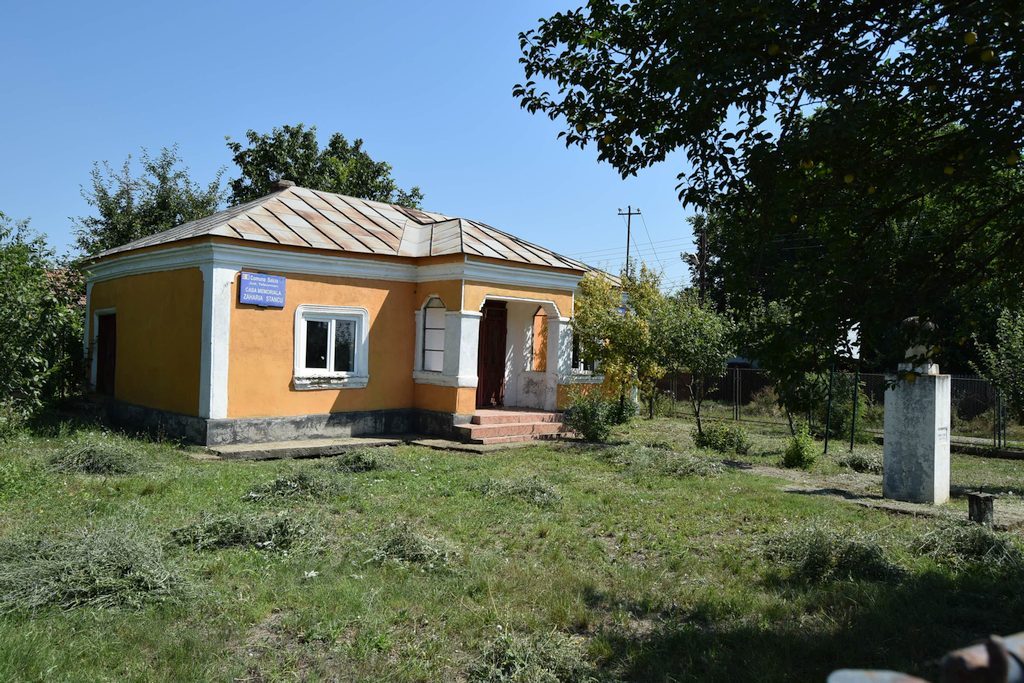

The Zaharia Stancu Memorial House actually belonged to the writer’s sister, Lisaveta. The building was turned into a memorial house in 1994, displaying objects, documents, photos regarding the life and activity of poet and novel writer Zaharia Stancu (1902 – 1974) and now it also houses the communal library.
In the first room of the house, the first thing that draws attention is a caricature of the writer, done by I. Ross. Right on the neighboring wall there are photos where Zaharia Stancu was immortalized talking to the women in Salcia or holding his nephew Tudor. The second and last room celebrating the author houses his desk. On it there is an inkstand bronze holder, a knife to sharpen pencils, a bronze plaque with his portret and a portfolio. „The knife was received from Russian writer Leonid Leonov and and the inkstand holder and the portfolio both have an owl marks. It is said that the owl was lucky for Zaharia Stancu”, Cornelia Olteanu, the commune librarian explains. It invites all visitors to sign the guestbook of the memorial house and so have the chance to be seated in the chair from which Zaharia Stancu maybe wrote one of his great works. Zaharia Stancu (born October 5th 1902, Salcia, Teleorman county – died December 5th 1974, Bucharest) was a Romanian writer, author, theatre director, journalist, proletcultist poet and publicist.
After dropping out of school at the age of 13, he had different jobs until 1919, when he continued his literature and philosophy studies at the Bucharest University. After graduation, he became a journalist. In 1932 he published the magazine „Azi” and in 1937, the Democratic paper „Lumea românească”. Both publications were forbidden by the fascist regime. As such, Stancu was forbidden from publishing. In his journalist capacity he was incarcerated during WWII. In 1946 he became the director of the Bucharest National Theatre, position he had for over 20 years.
He was a member of the Romanian Academy and President of the Writers’ union in Romania. He won the State award for literature and in 1971 he received the Gotfried von Herder award from the Austrian government.
His novel „Desculț” which „travelled the globe with golden sandals” as the author liked to say, is the most translated Romanian novel of all times, being translated in 24 languages until 1988, having among others, a translation in Japonese.
